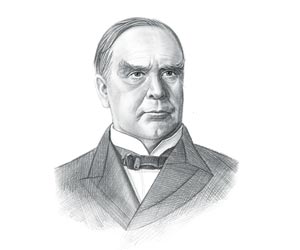|
|
|
|
|
The devastating hurricane was the deadliest in the history of the United States and went on to ravage other parts of Central and Western Texas.
The
1900
Galveston Hurricane for kids: The City
The
1900
Galveston Hurricane: Disaster in Texas
The
1900
Galveston Hurricane for kids:
Hurricane Ike
Galveston Hurricane Facts for kids: The Path of the Hurricane Facts about
Galveston Hurricane Dr. Isaac M. Cline, the meteorologist in charge of the local Weather Bureau, lived on Galveston Island sent a telegram to Washington, DC, predicting that a large part of the city was going to be flooded and would cause a major loss of life. Dr. Cline rode a horse-drawn buggy to warn people to move to safer, higher ground. Forty-eight people took shelter in Dr. Cline's house but to no avail. 32 of the 48 people drowned in the storm surge, including the wife of Dr. Cline. In the short space of just 4 hours the entire site of the city was covered by water destroying homes, businesses, warehouses, stores, public buildings and churches. The gale lasted for a total of 8 hours Railroad tracks, telegraphs, telephone lines and bridges were also torn down and debris was hurled around the city making it almost impossible for people to pass. The people were absolutely terrified. A Black darkness fell on the city and the howls of the winds of the hurricane, the crashing of buildings and the screams and the cries of people filled the air. People watched in helpless horror as friends and family, including children, drowned in front of their eyes. After the devastation, there was a delay in relief workers reaching the area - transportation by train was not possible due to the destruction of the railroad tracks. To the horror of the residents there were many instances of looting following the disaster and government troops were called in. Looters found with stolen items in their possession were lined them up against a brick wall and shot without ceremony. Thousands of dead animals and people lay dead in the streets and in the shattered wreckage of their homes. Decomposition set in giving rise to an unbearable stench. The ground was water-logged making burials difficult. Of all the fatalities only 500 people were buried in the city, many were buried on the beach, the majority of corpses were cremated or buried at sea. Literally thousands of bodies were thrown into carts, loaded on to barges, taken a few miles out to sea where the corpses were weighted and thrown into the water for a burial at sea. The cremations were also conducted without ceremony. The bodies were piled into heaps consisting of 20 - 40 corpses, saturated with kerosene and set on fire. The burials at sea and the unceremonious cremations were the only options. There there was a genuine fear that disease and pestilence would kill the remaining survivors of the hurricane. Refugees fled to Houston, Texas and Texas City where they were fed and housed by people of the cities or provided with Tents. A relief fund was set up and donations were received from all over the United States and other countries of the world. Many eye witness reported that the town was irreparably wrecked and beyond repair - 75% of the buildings had been completely destroyed. The people proved them all wrong. Provisions, clothing, disinfectants and medicines were sent to Galveston and the clean-up and re-building process began It was initially estimated that $2.5 million dollars would be needed for the relief work - the cost came to over $20 million dollars in 1900 - equivalent to billions in modern terms. It was the second costliest hurricane in US history, second only to Katrina. Hurricane Katrina in 2005 claimed 1,836 lives and cost $113.4 billion dollars. Ike in 2008 cost $ 29.5 billion dollars. In April 1901, Galveston introduced the commission system of government replacing the mayor and city council. a major step in the Progressive Movement The Galveston Hurricane in Texas remains the deadliest hurricane in United States history. In April 1901, Galveston introduced the commission system of government replacing the mayor and city council. Another terrible natural disaster would America in 1906 - the San Francisco Earthquake |
| US American History |
| 1881-1913: Maturation Era |
|
|
|
|
|
First Published2016-04-19 | |||
|
Updated 2018-01-01 |
Publisher
Siteseen Limited
| ||
|
|

